Tips to Get Organized When Facing Breast Cancer
This post may contain affiliate links provided for your convenience. We earn commissions if you shop through the links on this page. I am also an Amazon Associate and earn from qualifying purchases Read my full disclosure policy.
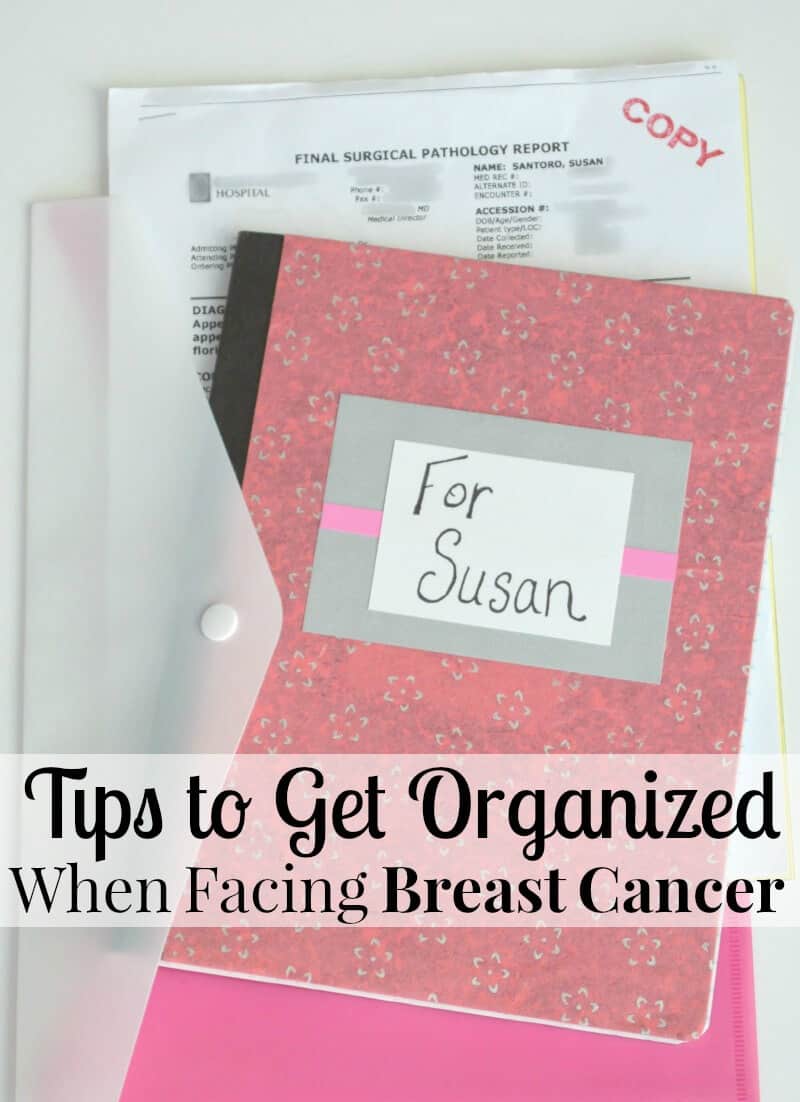
October is Breast Cancer Awareness Month and the perfect time to share information about the disease and support causes that raise funds for research. Breast cancer is the second most common type of cancer in women, with approximately 231,340 new cases diagnosed in the U.S each year. I’ve had several friends and family members face breast cancer and in talking with and supporting them, these are tips to help you get organized when facing breast cancer. When facing any disease, being organized will make the complex and difficult process a bit easier and anything that can make it easier is invaluable.
Recently I faced an unexpected surgery and was struck by how unprepared I was. You can never really be prepared for a medical emergency or life-threatening diagnosis, but thinking about what you should do now will help you when you’re in that phase of stunned confusion and most need structure and a plan to follow.
List of all Allergies, Medical Conditions and Current Medications – Now before you need it is a good time to write down all your allergies, medical conditions and all current medications you are taking. Keep this list in a safe place that is readily accessible. Make sure your family members know where it is in case you’re unable to tell them at the time it’s needed. When you’re emotional and dealing with a medical situation, it’s unlikely that you or your family member will remember all the details of allergies, medications and medical conditions, yet this is critical information that your doctor needs. Gathering the information in one location now when you’re able to think clearly and take the time you need will be invaluable if you ever face an emergency medical situation.
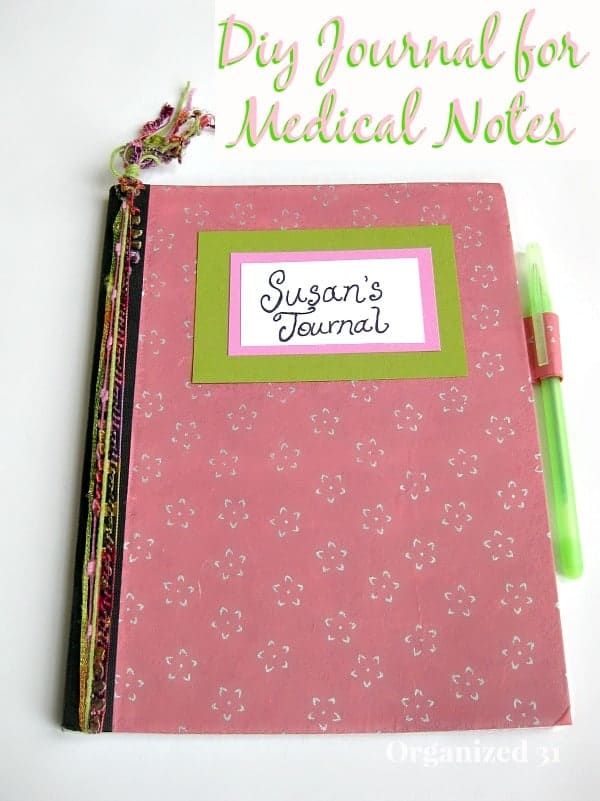
Have a Journal for Medical Notes – Have notebook that you can take to every medical appointment you have. Use this journal for medical treatment notes to write down dates, names, medical terms, medications and anything you need to remember. Also, use the journal at home to write down questions you want to ask the doctor at your next appointment. Going through the medical treatment process is overwhelming and confusing. Having one journal where you can keep all your important notes and questions makes it easier to keep track of this vital information.
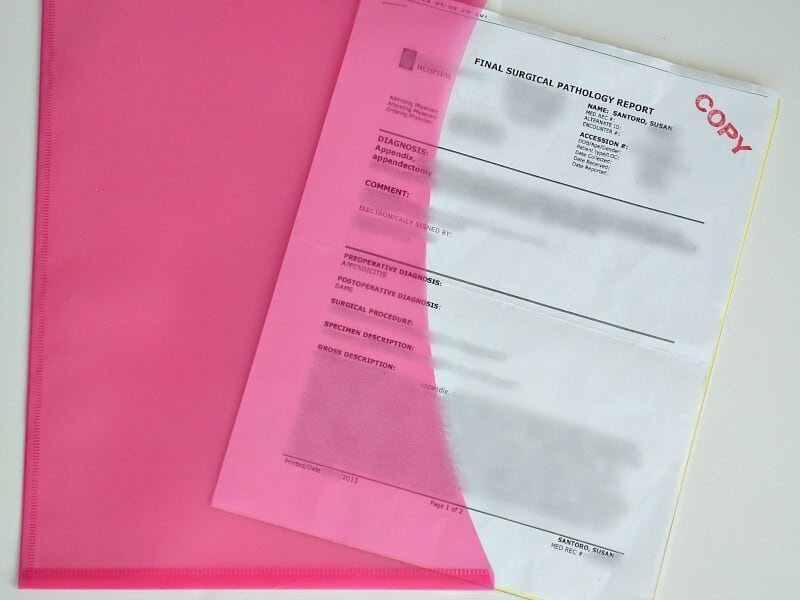
Have a Folder for Paperwork – Have an easily identifiable folder to hold all loose paperwork associated with your medical treatment. Keeping all pertinent paperwork together in once place makes it easier to find the information you need when you need it. You can read more on how to organize medical files with tips from my friend, Holly who is a breast cancer survivor and blogs at The Coconut Head’s Survival Guide.
Gather all Necessary Insurance Information – Make sure you have insurance information like your identification number, your policy number, the insurance contact phone number and fax number, details on your coverage, limits and requirements. Gathering your insurance information now provides you with the opportunity to review your insurance policy. For most U.S. companies, fall is the open-enrollment season, which means now is the time you can review your employer-sponsored benefits and choose the health insurance policy that best meets your financial and health care needs. As you review your insurance coverage, it’s the perfect time to consider whether you should have a cancer insurance policy, which can allow you to focus on recovery not finances.
Take a Family Member or Friend to All Appointments – You’ll be discussing medical information that most likely will be entirely new to you. You’ll also be in an emotional state. It will be difficult to process, absorb and remember all the information the doctor gives to you. It may also be difficult to process the information and ask the questions that you want. Later during treatment, you may not be feeling well, so it will be even more difficult to process and remember everything you’re told. Taking a trusted family member or friend to every appointment gives you two sets of ears listening, two brains processing and remembering. Having that second person’s perspective is invaluable.
Early Detection is Key – Millions of women in the United States are surviving breast cancer thanks in part to early detection . The goal of breast cancer screening exams is to find cancers before they start to cause symptoms. Breast cancers found during screening exams are more likely to be smaller and still confined to the breast. Please check the American Cancer Society’s most recent recommendations for breast screening guidelines and follow them.
Support Breast Cancer Awareness Month – Do your part in supporting charities, organizations and companies that support Breast Cancer Awareness and fund raising.
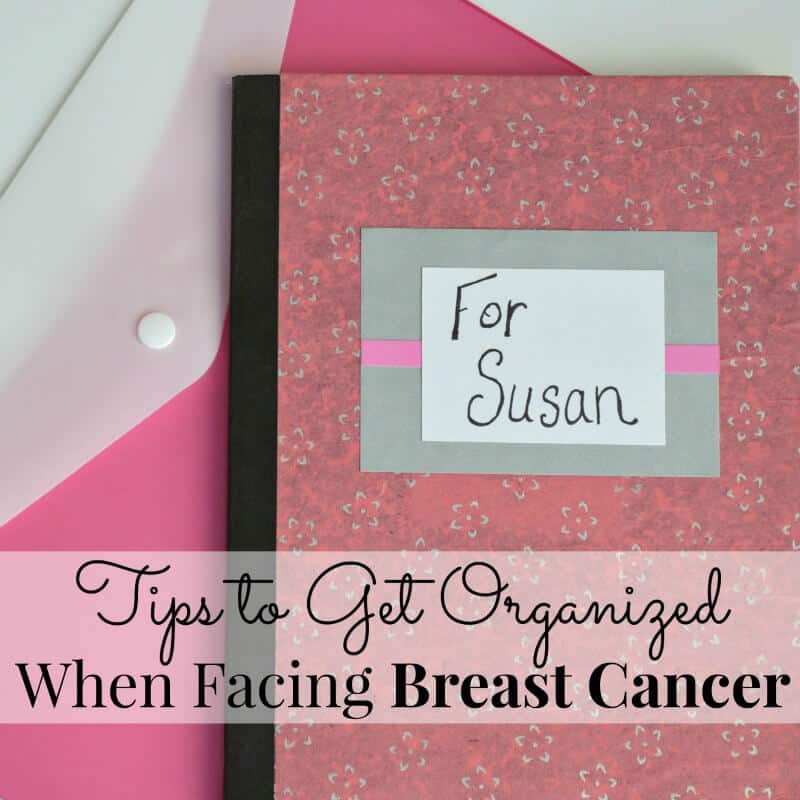
Do you have any tips to get organized when facing breast cancer? More importantly, have you recently had a breast cancer screening exam? Please take the time time this month to schedule your next breast cancer screening exam and review your insurance policies to make sure they best meet your needs.
I was selected for this opportunity as a member of Clever Girls and the content and opinions expressed here are all my own.
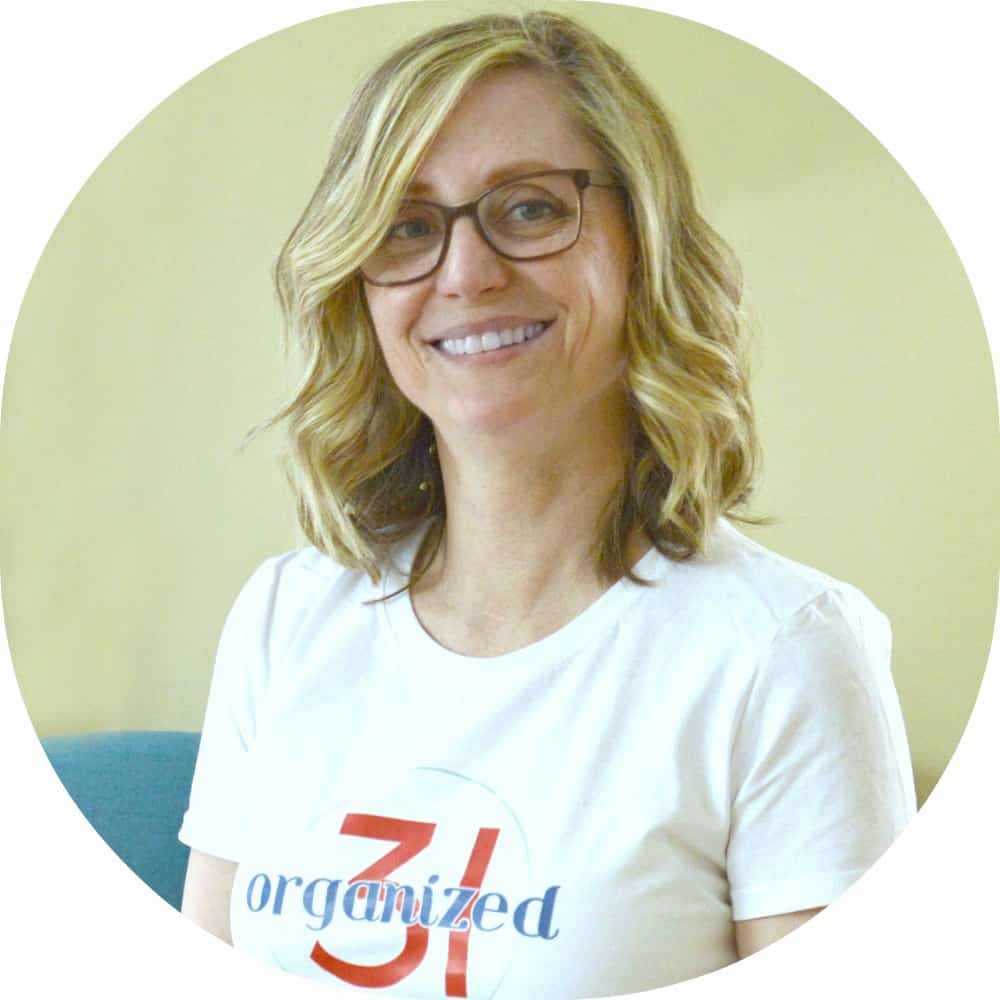
I’m a mom of 3, a veteran, military spouse. I’ve moved into 20+ homes all around the world. My passion is helping busy people make the space and time for what’s really important to them. Learn more about Organized 31 and me.
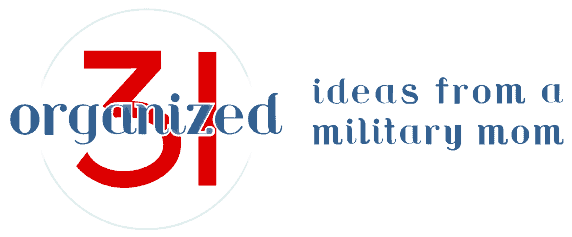
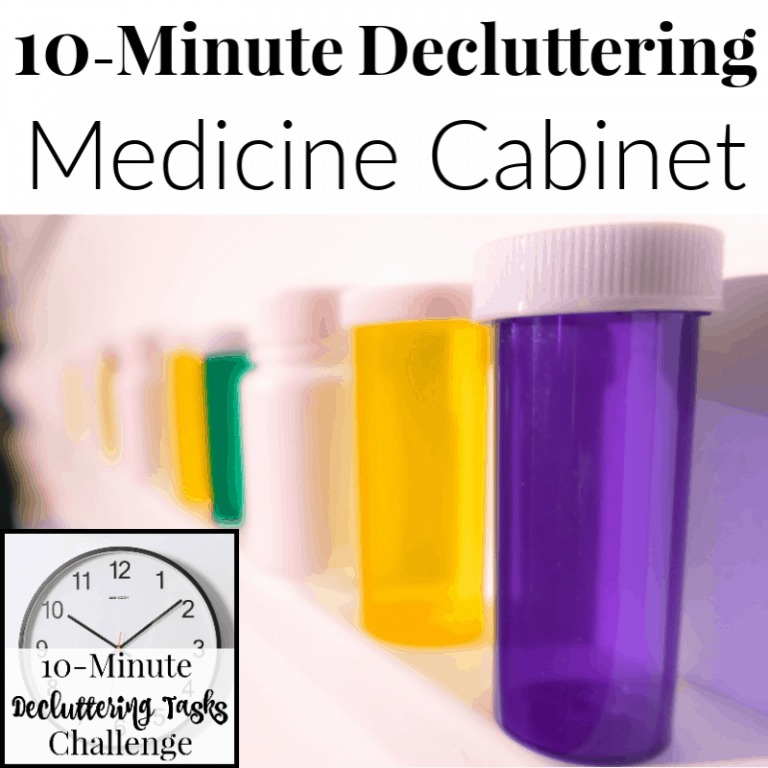
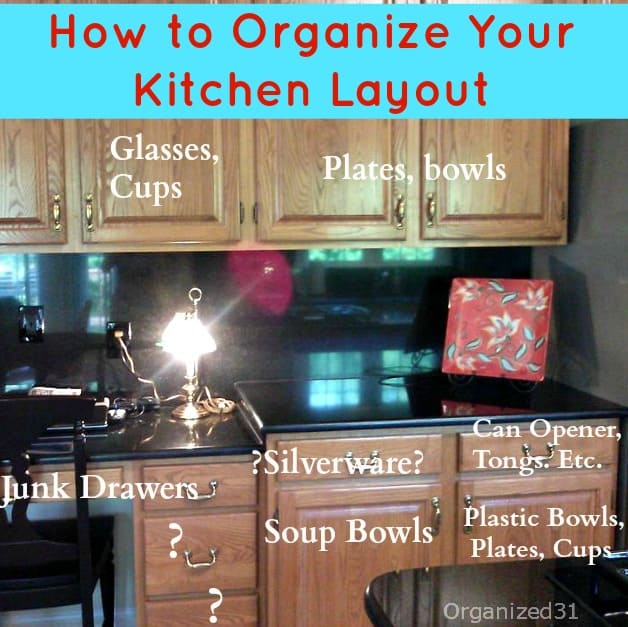
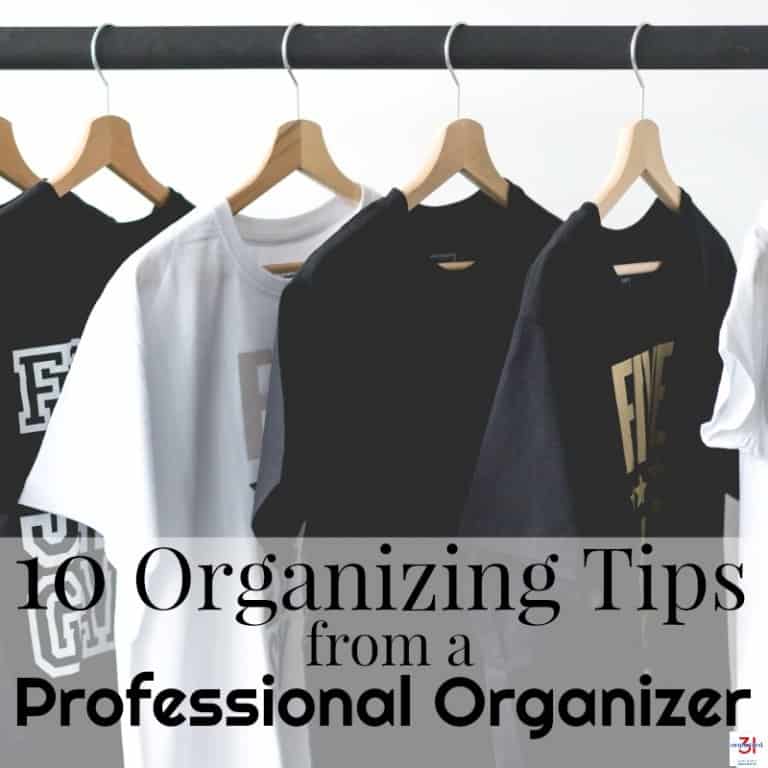
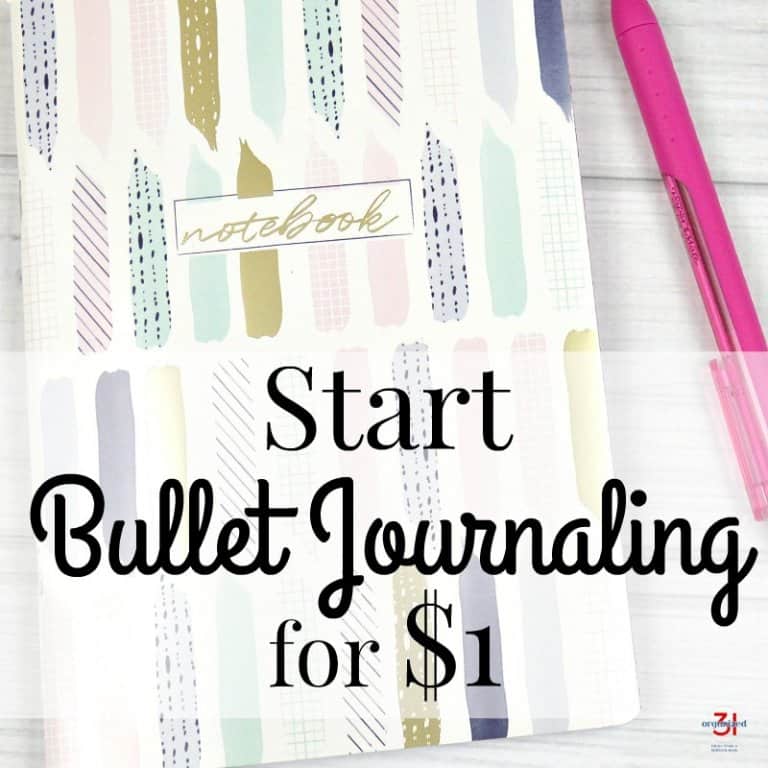


I am so glad you shared this. When I found out I had breast cancer, my surgeon’s office gave me a envelope folder. There were sheets to help me record appointments, questions and more. At first I thought I wouldn’t need it, but I realized that it was so important to have. I wish I would have made a nice notebook like this. Having something like this helps to feel in control of the cancer and not let the cancer control you!
That was so helpful of the surgeon’s office to give you those forms. There’s so much to keep track of and all while you’re distracted with the disease and procedures. I like how you put it – “in control of the cancer and not let the cancer control you.”
So true. It could not be more important to be organized when experiencing a life challenge as tough as breast cancer.
Organization is so important in a health crisis. The more organized we are, the clearer we can think and that is key to making good decisions. Susan, thanks so much for this information.
You put it perfectly, Monica – the more organized we are, the clearer we can think. I may use that as my tagline. 🙂
What a great idea! I can only imagine that all of the information and decisions that need to be made can be overwhelming! Keeping it all organized would help!
I’m a big believer that a little organization makes life simpler and better (if nothing else, it gives me a feeling of control when everything else is out of my control)